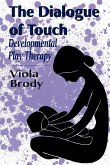Infancy is a time of rapid growth, when brain plasticity is at a maximum. Event-related potentials (ERPs) are one of the few methods that can easily and safely be used to study this process, and have led to exciting discoveries about human brain functioning and the neural basis of cognition. Over recent years, there has been a massive rise in the level of interest in ERPs and this book considers the advantages which they offer to researchers and clinicians. In particular, it looks at the benefits of this form of neuroimaging as a non-invasive tool for detecting impairments in brain and cognitive development very early in life. The potential use of ERPs for clinical settings is also explored in detail. The contributions are all from eminent researchers in the field and represent the latest thought on the topic. Infant EEG and Event-Related Potentials explains the basics of event-related potentials for those less familiar with the procedures and terminology, as well as offering a valuable handbook of the latest theories and empirical findings for those working in the field. This will be a valuable source for those interested in developmental psychology and neuropsychology, and for clinicians interested in application of ERPs.
Hinweis: Dieser Artikel kann nur an eine deutsche Lieferadresse ausgeliefert werden.
Hinweis: Dieser Artikel kann nur an eine deutsche Lieferadresse ausgeliefert werden.








